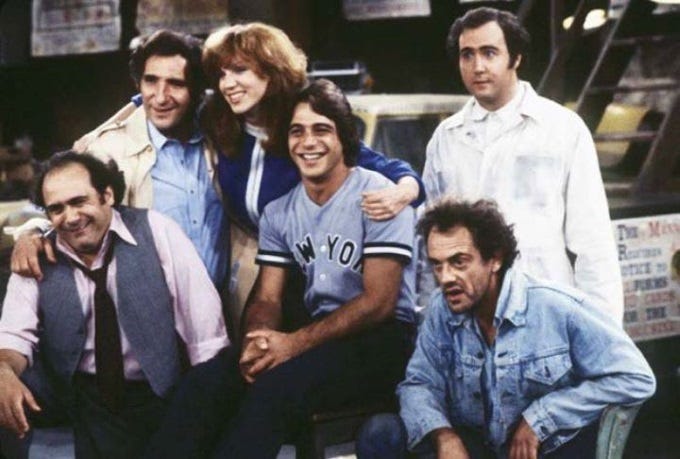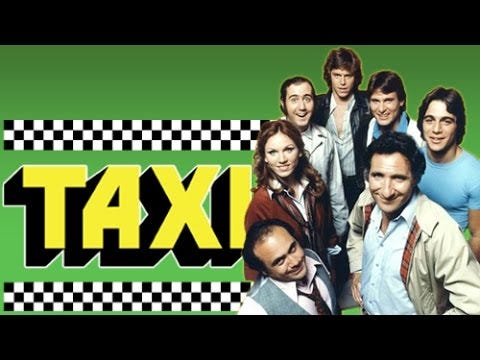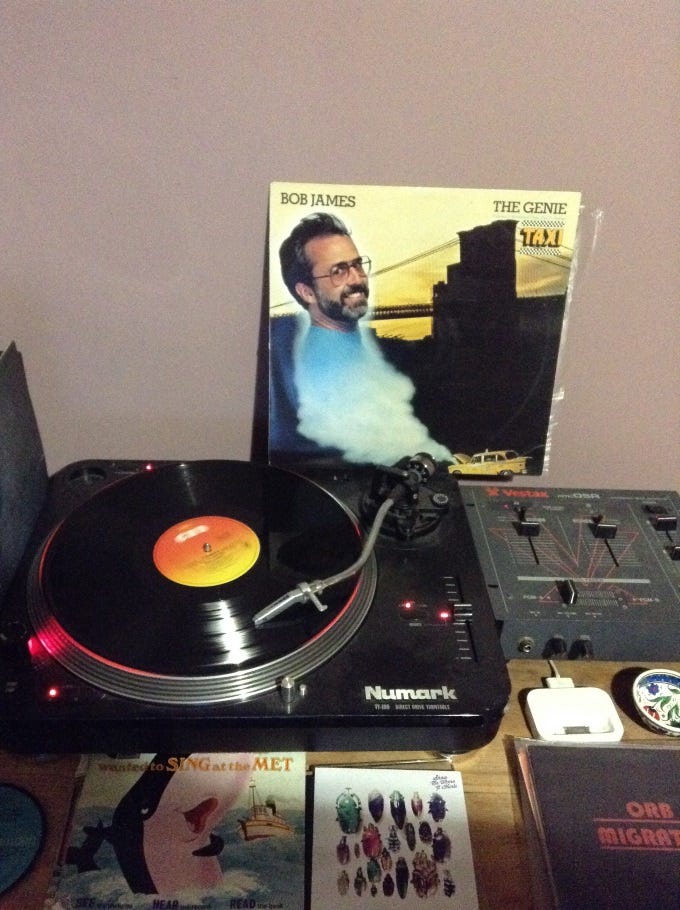Taxi ran from 1978-1982. It’s one of the shows I remember best from my childhood, one of the family shows. Friday night. Dad brought home the fish ‘n’ chips and we were so stoked about that; pleased – also – to see him, since he worked long hours and the weekend was all about sports and hanging out. Friday night takeaways was the start of the fun times.
And I’d sit there watching Taxi – even when I was too young to fully get the dynamic – and marvel at the characters. Obviously in the early screenings the key was Louie De Palma (Danny DeVito’s breakout role) and then in the second season and on from there, “the Reverend” Jim (Christopher Lloyd). They shouted a lot. Jim was one of those philosophers with that Oscar Wilde notion, sure he (looked like he) was down in the gutter, but he was still looking up at the stars. Most often they were circling about his brain, fizzing, popping, pulsing…
There was Bobby the hunk/the cool guy/failed actor, and Tony (one of several roles Tony Danza played where it seemed best to call his character Tony, so that, you know, he’d respond when the other actors said his name) the amateur boxer with quick hands and a not so quick mouth.
I loved Latka, Andy Kaufman’s “foreign man” character.
But holding it all together, the key to the show, one of TV’s most wonderful and fascinating characters was Alex Rieger (played by Judd Hirsch). Alex wasn’t cool, he was never rude. He knew how to have fun. But didn’t try to do that too often. He was lonely. There was always some sense of sadness in his life – but he put the problems of other people first. He was in fact a recovered problem-gambler, he’d lost his marriage, his child, his job – he drove a taxi as a way of getting by; perhaps solving problems for other people meant he didn’t ever have to properly address his. He was the moral centre of a show that featured a star turn from one of TV’s most delightfully deplorable fiends. Louie De Palma, the head dispatcher at the Sunshine Cab Company, would steal your glass eye and shit in the socket. A rotten chap – and the raging embodiment of Small Man Syndrome.
The first time I revisited Taxi, like I say it was always there as a kid, was after seeing Man on The Moon. I went in a Jim Carey fan, I came out obsessed with Andy Kaufman. Still a Carey fan too – but I dived into Andy’s world, reading about him, finding the old footage (harder to do in the pre-YouTube days, now the goldmine has been picked over and is free for all) and I got hooked on watching Taxi again.
I was also transfixed by the music – Bob James’ song, “Angela”, written as the opening and end-credit music (he also composed versions of his dinner-jazz-meets-funk-lite for scenes inside the show) has been one of my all-time favourite pieces of music since I first heard it/since I first heard the show.
Hearing the theme tune to Taxi on the soundtrack to Man on the Moon (I had the album) was a big trigger. I fell in love all over again.
And then, one Christmas, one of my first as a parent, I drove up to Hawke’s Bay and listened to the theme tune on a loop for about two hours. I had planned to drive the whole way, I’d made an iPod playlist to save me hitting repeat – I guess I thought it was funny. I’ve since re-made the playlist for Spotify.
Eventually, my memories of watching Taxi – and the new story about listening to the soundtrack on a loop – became this poem. Probably the hinge of my book, The Death of Music Journalism. Certainly the poem I’ve been asked about the most, been told is a favourite by readers – and one I’ve read aloud more often than any other from the book. There’s even audio of me reading it live on RNZ. (Or video of me reading it, even).
I used to finish my DJ sets with Angela, the theme from Taxi. A wee joke. Other times I’d play Harry Belafonte’s Day-O. Silly little in-jokes – but great, great pieces of music. Just the tonic at the end of an eight-hour DJ set.
But it wasn’t just about the in-joke. It was about the nostalgia – and not just the nostalgia of watching that show as a kid, with my folks (though that’s in there too, sure) it’s about movement, a moving on, the idea of constantly creeping forward at least. Never staying still – you can look back, but that’s what the rear-view mirror is for, you need, also, to be moving forward. Rolling on…
Again, all of this ended up better expressed in the poem. (And, being a poem, it wasn’t even – really – about the TV show at all…)
I watched some of the Taxi shows on VHS, then on DVD. More recently someone sent me the files of the films – since they don’t appear to be streaming on one of the official platforms. Not every episode is a knockout, but the quality is decent, because of these superb actors, bringing to life these brilliant, very real characters.
Also, I love that it remains funny. Comedy dates. And sometimes quite brutally. Sure, there are some situational aspects to Taxi that might seem hard to grasp now. But I love that so much of the comedy in this comes from equal-opportunity fun-poking. The characters weren’t especially nasty to one another (apart from Louie – an intended comedy-villain, usually he lost out, got his comeuppance). But they dealt with their problems – and life (usually that was the problem in a nutshell) with humour, with heart. They talked to one another. They shared the pain of just trying to make it through the days between paychecks, the bonus was if you could hold your head high.
And there are some funny lines. Still. They haven’t dated. Sure, the sets, the clothes, the music, the feel and look – all of that dates the show. You watch it now, you know it’s late-70s/early-80s in an instant. That in itself seems a comfort right now – easier times, simpler times. As the scenes work, as each episodes works – and is resolved – it seems to run more like a stage-play. That one main set – a few external locations – and inside half an hour you had something that was never too syrupy and corny. Or if it was that seemed to be exactly what the doctor ordered. For the most part it was about heart – about showing comedy characters as more than just caricatures. There are some obvious tropes and types, Marilu Henner’s Elaine Nardo was this tribe’s Smurfette, that’s for sure. Alex goes five seasons wishing he could fuck her – and knowing he never could (more importantly that he never should).
I’m rewatching Taxi (again) with the hope to one day write some essays about it. Like this, but obviously running deeper. Looking at the themes. Looking at how the show continues to have some pull over me.
Bob James’ soundtrack remains a favourite – the whole soundtrack album is beautiful; is genius in my mind.
Taxi, for me, is a reminder of happy family times, of being happy just to be together and watch TV; to have the box on in the corner of the room offering its version of warmth. And of course with Taxi it was both a lesson about life and – because it was taught through the medium of television it was also a short wee escape from life at the very same time. That’s a big part of the magic of it right there.








